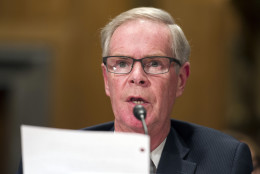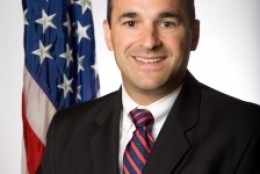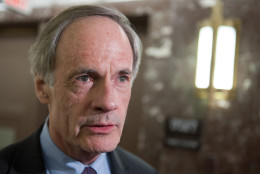Improper payments
-
The Government Accountability Office says it's helping agencies move from a "pay-and-chase" mentality to a broader, more risk-based approach to combating fraud. Yet even with help from GAO and OMB, agencies still need better data analytics tools and stronger leadership attention to address the root causes of fraud.
October 11, 2016 -
The Office of Management and Budget said it's overhauling PaymentAccuracy.gov, the website the agency uses to report improper payments data. The original version of the site wasn't entirely accurate, OMB Controller Dave Mader told Congress. But some lawmakers are skeptical that OMB's work will bring the results it's looking for.
September 23, 2016 -
Government issued more improper payments in fiscal 2015 — $137 billion — a new high for agencies since the Office of Management and Budget first began measuring the rate in 2004. And as more agencies receive more material weaknesses, OMB said the federal accounting community has a role to play in turning this negative trend around.
September 21, 2016 -
Approve of them or not, these vast and Byzantine federal programs at the ground level provide lifelines to millions of people. So summary execution of them is no answer.
September 07, 2016 -
The Social Security Administration is pairing up with the Center for Medicare and Medicaid Services to ensure that social security benefit recipients over the age of 90 are, in fact, still alive.
April 08, 2016 -
The GAO, the administrations who preside over improper payments, the chief financial officers — it's not fair to say they're nonchalant about it. More like inured, numb to the magnitude of it.
March 02, 2016 -
Most of the increase in the government's improper payments during 2015 comes from a higher rate of payment errors in the Medicaid program.
February 26, 2016 -
Reported improper payments are likely to increase as agencies improve their ability to ferret out overpayments and underpayments
February 25, 2016 -
Indiana avoided $80 million in what the feds would call improper payments, and now the crooked filers are moving on.
February 04, 2016 -
The Army and GSA say most families who've been waiting months for promised childcare subsidies have been compensated. But several other aspects of the Army's Fee Assistance Program will take months more to correct.
January 07, 2016 -
In Depth's Francis Rose and OMB Controller Danny Werfel talk strategy when it comes to the fight against the rising number of improper payments in the federal government.
October 14, 2015 -
The governmentwide improper payment rate jumped 14 percent during the last fiscal year to more than $124 billion. The Office of Management and Budget is working on a new reporting matrix for agencies to figure out who and what is responsible for all that money. Danny Werfel, director of the Boston Consulting Group and former OMB controller, talks to In Depth with Francis Rose about the new reporting matrix.
October 14, 2015 -
An effort to cut improper payments from the Obama administration hasn't worked the way the White House wanted. Comptroller General of the United States Gene Dodaro told the Senate Finance Committee improper federal payments increased by almost 20 percent in 2014. Beryl Davis, director of financial management and assurance issues at the Government Accountaibility Office, told In Depth with Francis Rose that GAO has been unable to determine the the full extent of improper payments.
October 05, 2015 -
Congress and agencies are still looking for answers as they grapple with a 14 percent increase in the governmentwide improper payment rate in 2014.
October 02, 2015 -
Agencies lose a new record of $125 billion in improper payments last year. Twenty-two different agencies committed errors, and three programs account for $93 billion in improper payments. One of those programs is the Earned Income Tax Credit, which has a 27 percent error rate. Danny Werfel, director of Boston Consulting Group and former acting commissioner of the Internal Revenue Service, is writing for the Centre for Public Impact. He tells In Depth with Francis Rose why cutting government waste isn't as simple as it might seem.
August 17, 2015














